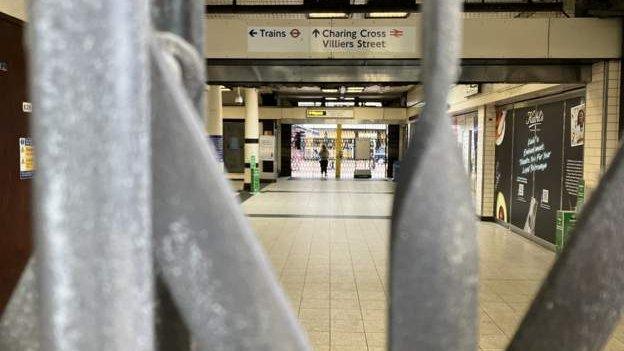London Underground back on track after knock-on delays from strike
- Published
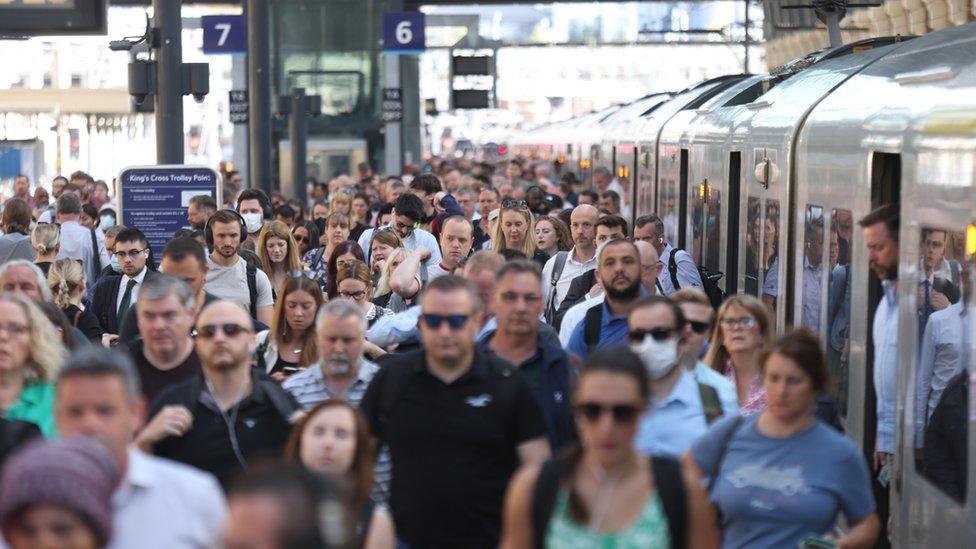
The Tube was especially busy as service were affected by striking staff
The London Underground is largely running as normal following Tuesday's industrial action.
Services other than the DLR, Northern, Victoria, Waterloo & City and Elizabeth lines suffered delays Wednesday morning as a knock-on effect of the strike.
About 10,000 Tube staff walked out, claiming proposals by bosses will cut jobs, change working agreements and pensions.
Most lines are now running a good service, TfL said.
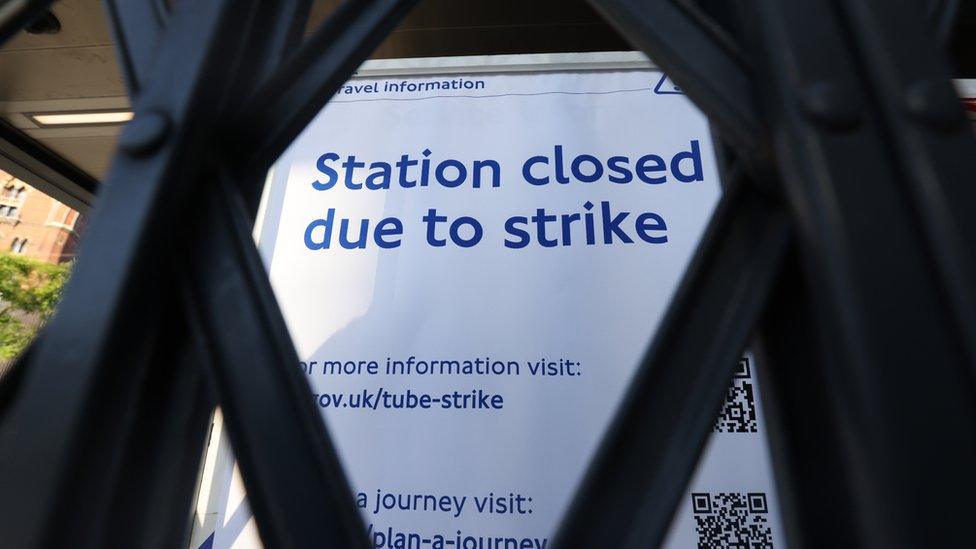
Passengers were advised not to travel early on Wednesday
Tuesday's strike by Tube workers, the fourth so far this year, was part of a national rail strike by the Rail, Maritime and Transport (RMT) union, which also affected the number of London Overground and Elizabeth line services running.
Tube stations across the capital were mostly empty of travellers as services were reduced or cancelled, while large queues formed for buses, taxis and boats and passengers who turned to their cars endured long delays.
The RMT union says 600 jobs will be lost under TfL plans for the London Underground network, while it has also warned that its members face "detrimental" changes to their pensions and working conditions.
TfL previously said nobody would lose their job under current proposed changes. The transport body has suggested it will not recruit to fill between 500 and 600 posts as they become vacant, in order to fulfil a previous funding agreement with the government.
Meanwhile the RMT union is set to meet Network Rail and train companies for further talks, ahead of planned rail strikes on Thursday and Saturday.

Follow BBC London on Facebook, external, Twitter , externaland Instagram, external. Send your story ideas to hellobbclondon@bbc.co.uk, external
- Published23 June 2022
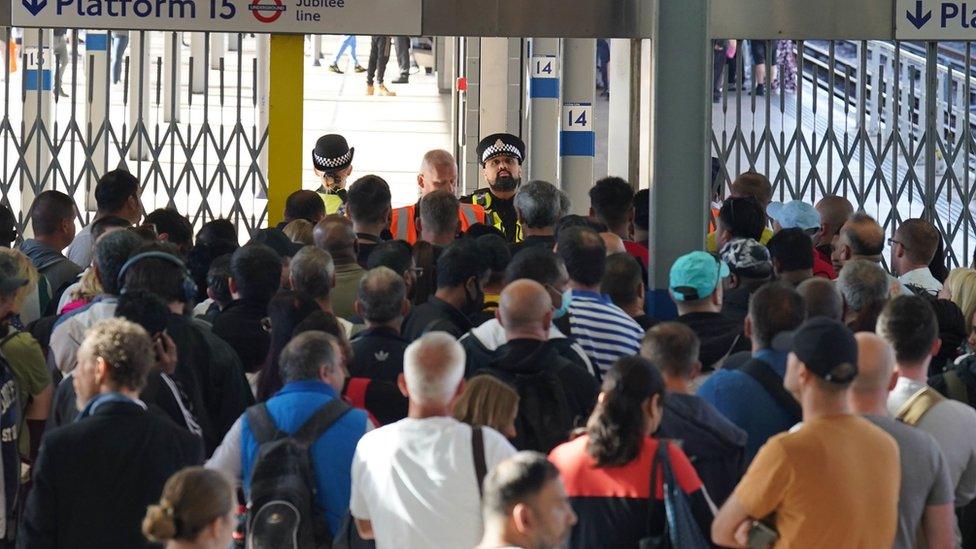
- Published21 June 2022
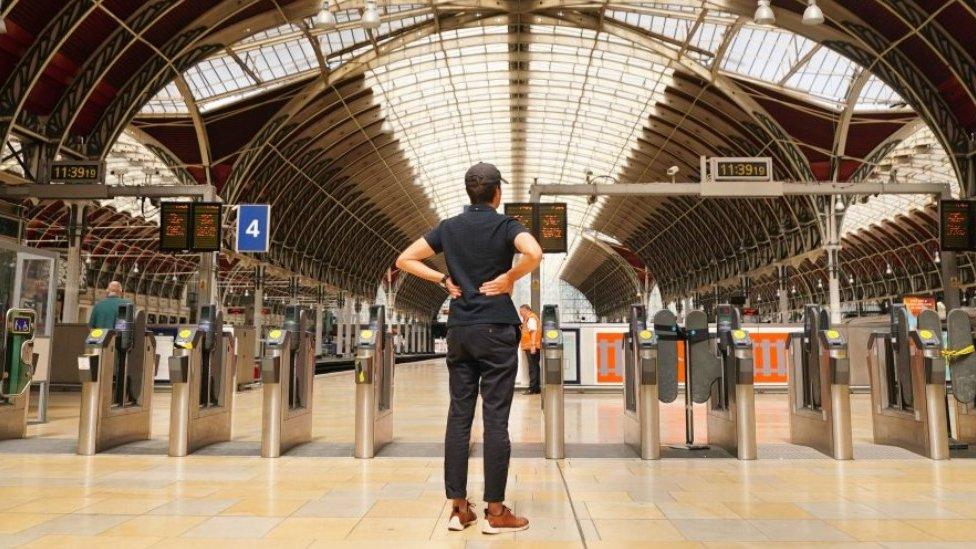
- Published9 May 2024

- Published20 June 2022
- Published6 June 2022
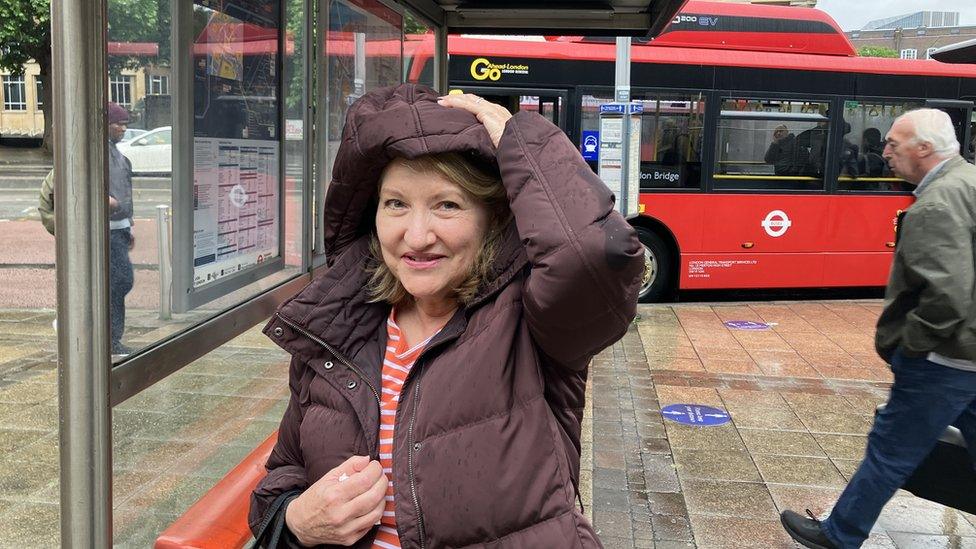
- Published6 June 2022
